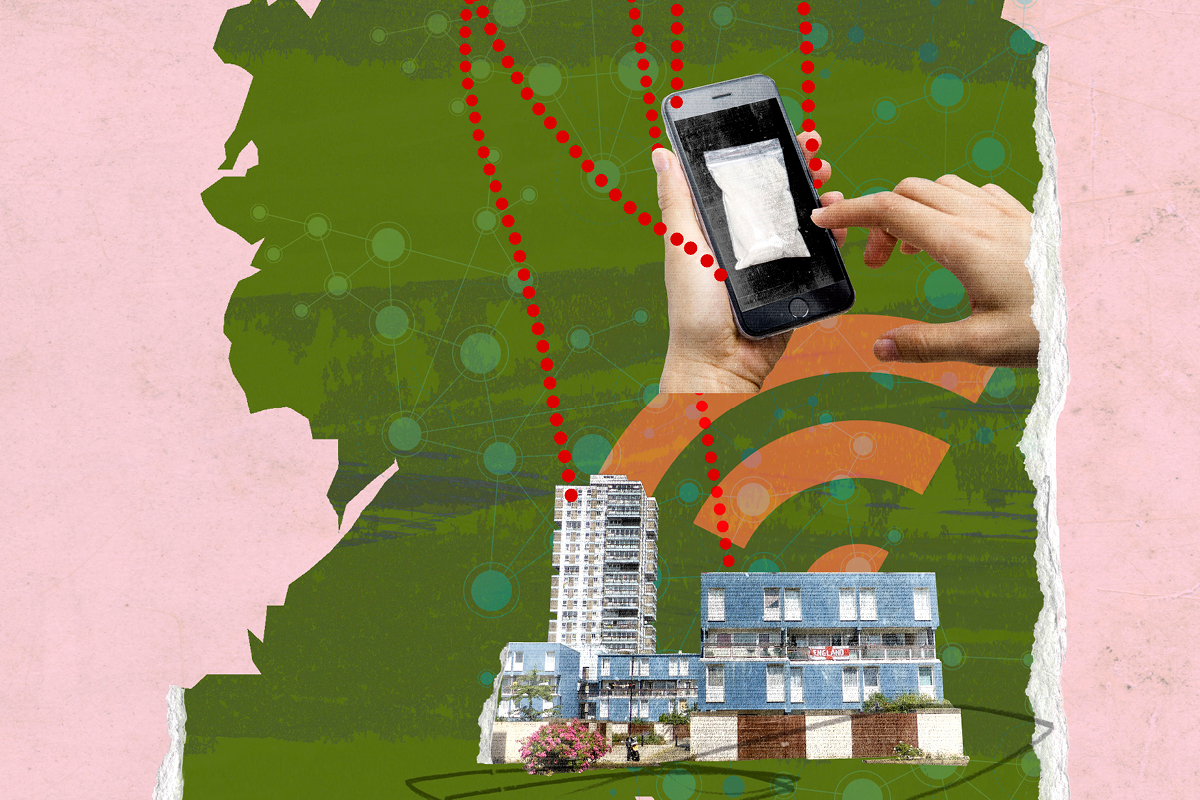You are viewing 1 of your 1 free articles

Give social landlords the powers to fight county lines, as COVID-19 makes the threat worse
Coronavirus has increased the risk of drug dealers ‘cuckooing’ properties. Darren Burton argues that social landlords need new statutory powers to tackle this threat
Even before coronavirus, children and young adults being exploited into selling drugs was a growing problem. The National Crime Agency reported a 50% increase in ‘county lines’ drug dealing in 2019.
It’s unclear exactly how COVID-19 will affect the spread of county lines this year.
In some instances, lockdown measures may restrict the movement of drug dealers, who are keen to minimise detection in quieter streets and places. This may halt the spread of county lines into new areas.
However, it could cause drug dealers to adapt their methods by focusing more on localised ‘cuckooing’ – a tactic where they take over someone else’s home.
Typically, a ‘cuckooed’ property provides the county lines gangs with a base from which to supply drugs and expand their networks.
It can be used as a ‘recruitment centre’ for targeting vulnerable children, who, because they aren’t attending school due to lockdown, may be more at risk from the gangs. The county lines dealers realise there’s less chance of remote education professionals spotting the signs of young people being exploited.
Social landlords are well aware of the problems presented by ‘cuckooed’ properties. They become an epicentre for anti-social behaviour and can quickly destroy communities. It’s for these reasons that social landlords must be granted statutory powers to tackle county lines.
“A cuckooed property can be used as a ‘recruitment centre’ for targeting vulnerable children, who, because they aren’t attending school due to lockdown, may be more at risk from the gangs”
Currently, there are many inconsistencies in how different agencies work together to address this problem. There’s often confusion about who gathers and compiles evidence, lack of understanding about legislation, and delays in applying for premises closure orders (PCOs), which are used to shutdown properties to stop ‘cuckooing’. This all provides county lines gang leaders with exactly what they need: time.
Country line dealers have the time to take over a victim’s own home and establish their drugs operation. They have the time to identify victims, find their leverage and then manipulate them into selling drugs.
They have the time to alter their operations during a crisis – there’s concern that county lines gangs may use the daily exercise allocations of lockdown to mask the local distribution of drugs. They can do this by providing young people with bikes.
If housing associations were granted statutory powers to gather evidence and obtain a PCO, they would have the ability to more quickly close down their own properties. It means more immediate action could be taken to address and regain control of the cuckooed property and increases the opportunity to apprehend the gang leaders.
The visual impact of a closed property can also help build confidence in the local community and address the fear factor that county lines thrive upon. If the community sees that action is being quickly taken, other people are more likely to report their concerns. The social landlord can then continue to gather evidence and build a stronger case to help the police.
Social landlords and partner agencies are also having to respond to the challenge of maintaining meaningful engagement with young people during lockdown to help them to move forward with their lives. A lack of positive interaction, such as shutting down places being used for drug running, at this critical time could result in vulnerable people falling back under the control of criminal gangs and the county lines.
“Granting statutory powers to social landlords could help standardise best practice and roll it out nationwide. The power to gather evidence and obtain PCOs would bring with it new processes, frameworks and training”
Much of the excellent work being done to protect young people against county lines is often a result of tried and tested close working relationships between social landlords, the police, social services and charities helping vulnerable young children. They are collaborating, sharing knowledge and experiences to act more quickly and avoiding needless delays in the system from letting problems fester. This success is often very regionalised – what works in one area will not necessarily be replicated or shared in another.
Granting statutory powers to social landlords could help standardise best practice and roll it out nationwide. The power to gather evidence and obtain PCOs would bring with it new processes, frameworks and training. This would help improve knowledge of legislation and promote better understanding of roles and responsibilities among different agencies.
The end result would be to starve drug dealers of the time and fear they need to establish and grow their county lines – which would help housing associations create safer communities.
Darren Burton, head of housing consultancy services, Forbes Solicitors











